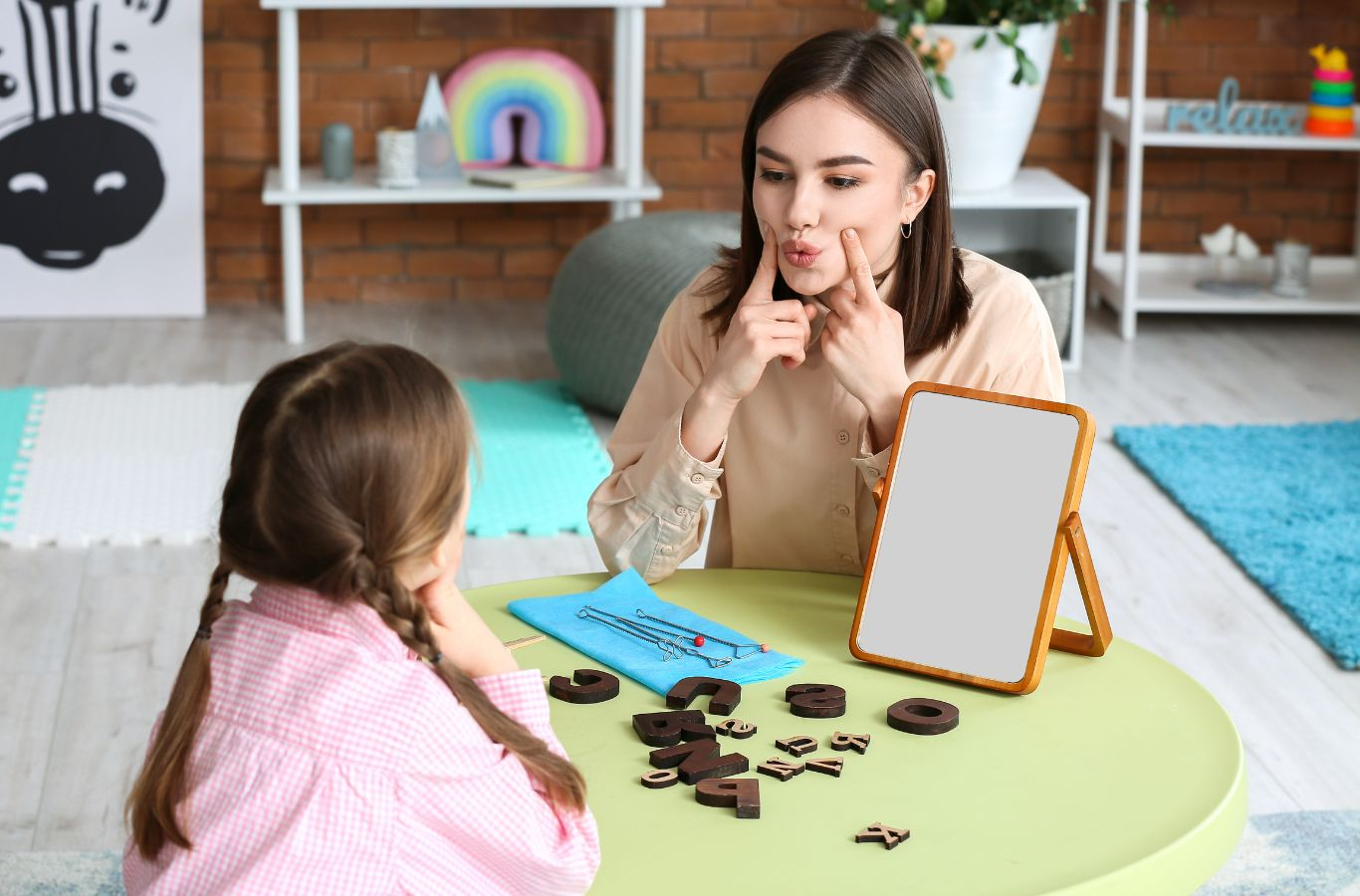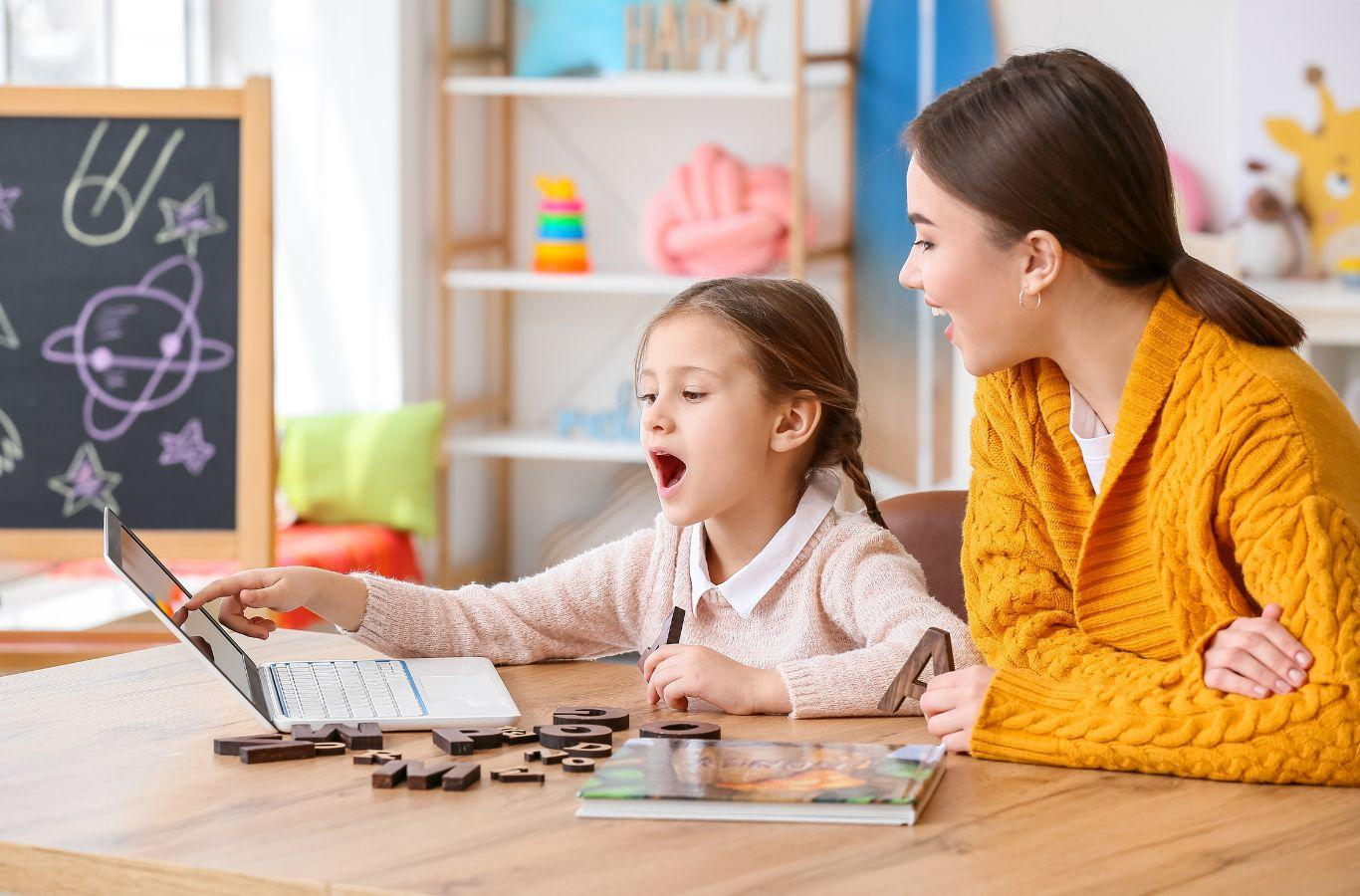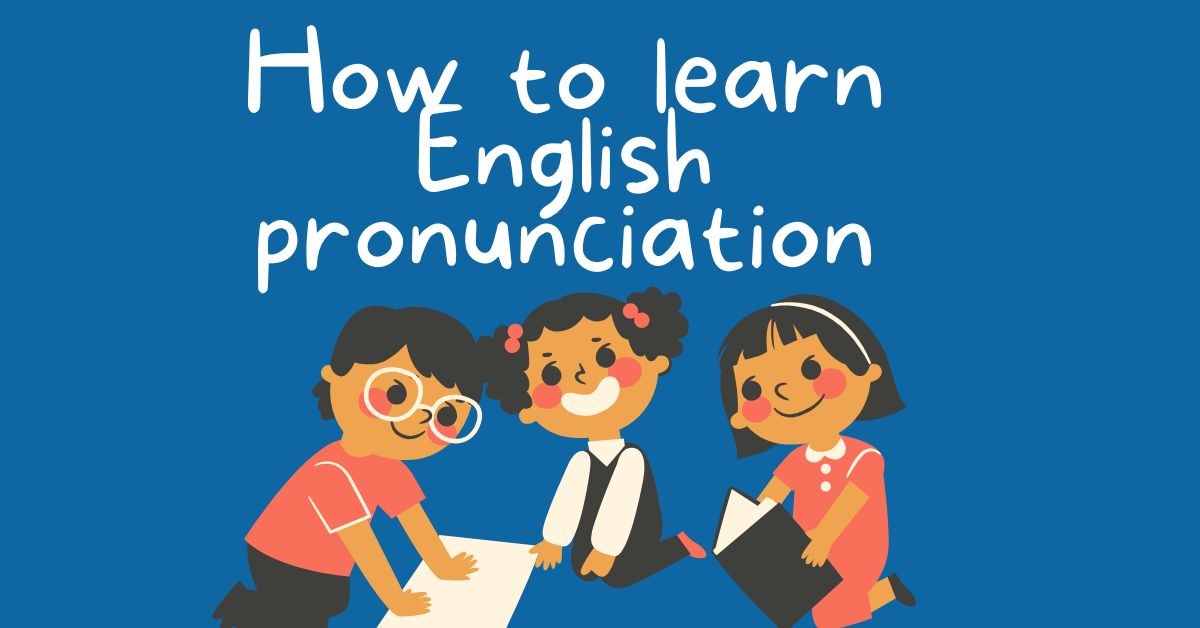Teaching English pronunciation to children from an early age plays a crucial role in building a strong language foundation. How to learn English pronunciation? The article below by Monkey introduces several effective methods for teaching English pronunciation to children, helping them develop their listening and speaking skills naturally and accurately.
The Importance of Teaching Pronunciation to Children from an Early Age
Teaching English pronunciation to children early plays a key role in developing effective communication skills in the future. Numerous scientific studies, including research by Dr. Patricia Kuhl (University of Washington), have shown that children aged 0 to 6 have an optimal ability to absorb and distinguish language sounds. This period is known as the "golden stage" for learning pronunciation.
If children are introduced to correct pronunciation methods during this stage, they can easily imitate accurate sounds, form habits of proper pronunciation, and build confidence when using English. On the other hand, if pronunciation is taught too late, it becomes harder for children to correct established mistakes and takes longer to achieve natural pronunciation.

How to learn English pronunciation to Children?
Choosing the right method to teach English pronunciation to children not only helps them learn faster and pronounce more accurately but also fosters interest and confidence in using a foreign language. Below are widely applied and proven methods for helping young children improve their pronunciation:
Teaching Pronunciation through Phonics
Phonics is a method that teaches pronunciation based on the relationship between sounds and letters. Children learn to recognize the sounds of individual letters and letter combinations, which allows them to spell and pronounce words correctly.
For example, when learning the letter “c,” a child will learn to pronounce it as /k/ as in cat, and also learn to distinguish it from the letter “s,” pronounced /s/ as in sun.
Many phonics learning materials such as Jolly Phonics or Oxford Phonics World are designed in an engaging and age-appropriate way, helping children learn through play.
Using Visuals and Real Objects
Children learn better through sensory experiences and visuals. Using flashcards, pictures, or real objects while teaching pronunciation helps children connect images, sounds, and vocabulary.
For example, when teaching the word apple, you can show a real apple, pronounce the word "apple," and encourage the child to repeat it. This method enhances memory retention and stimulates curiosity.

Listening and Imitating through English Songs
Music helps children absorb language more easily thanks to its melody and rhythm. English children's songs like ABC Song, Old MacDonald, and If You’re Happy... help children listen to and mimic pronunciation in context.
While singing, children naturally practice pronouncing syllables in a fun and pressure-free way. You can also combine singing with actions to make learning more engaging and effective.
Teaching English Pronunciation through Commonly Confused Sound Pairs
Some English sounds are easily confused by children, especially those not present in their native language. For example, the sound /θ/ (as in think) vs. /s/, or /ʃ/ (as in she) vs. /s/.
Teach children these sound pairs by comparing mouth shapes and tongue positions. Let them practice each sound, then move on to words and full sentences. This helps them clearly distinguish and pronounce the sounds correctly from the beginning.
Incorporating Pronunciation Games
Games create a fun atmosphere that helps children learn without feeling pressured. Some effective pronunciation games include:
-
Finding objects with similar sounds
-
Sound Bingo
-
Matching sounds with pictures
-
Pronunciation “right or wrong” contests
These games can be used both at home and in the classroom to encourage interaction and enhance memory retention.

Practicing Pronunciation through Animated Videos
Nowadays, there are many reputable YouTube channels and English learning apps for children such as Super Simple Songs, Cocomelon, Kiboomu Kids Music, Lingokids, Monkey Junior, and more.
These platforms provide engaging videos with animated characters and native-level pronunciation, helping children learn pronunciation in context. However, parents should monitor screen time and participate in learning with their child to enhance effectiveness.
Practicing Pronunciation with the “Listen and Repeat” Method
This is a simple yet highly effective technique: let the child listen to a word or sentence model, then repeat it. You should choose either standard American or British English depending on your goals.
Each day, you can let your child listen to short conversations, then encourage them to imitate the intonation, speed, and pronunciation. This method improves both listening skills and accurate mouth movements.

Using a Mirror When Practicing Pronunciation
Have the child look into a mirror while pronouncing words to observe mouth shapes, lips, tongue, etc., helping to form habits of accurate pronunciation.
You can demonstrate first for the child to imitate. For example, when pronouncing the /v/ sound, show that the teeth lightly touch the lower lip, then let the child watch themselves in the mirror and follow. This visual method helps children adjust the pronunciation of each specific sound.
Simple Daily Communication in English
Regular practice is the key to mastering pronunciation. You can create simple situations such as asking the time, counting numbers, asking about colors, or naming objects for the child to respond in English.
Even short sentence patterns like What is this? – It’s a cat, when repeated in a friendly environment, gradually improve the child’s pronunciation skills and natural response.
Learn Native-like English Pronunciation with the Super App Monkey Junior
In the journey to help children pronounce English accurately, choosing a suitable learning platform plays a crucial role. Among many methods and apps today, Monkey Junior stands out as a super English learning app for children aged 0 to 11, offering a structured curriculum that is easy to follow and highly effective in supporting pronunciation skills.
Monkey Junior is trusted by over 15 million parents in more than 100 countries. This app not only helps children get familiar with English from an early age but also supports comprehensive development of the four skills: listening, speaking, reading, and writing through a scientific and engaging lesson system.
Clear Learning Path Suitable for Each Age Group
-
Suitable for children aged 0 to 11, divided into 6 levels from basic to advanced.
-
Younger children (0-3 years) start by getting familiar with sounds, images, and simple vocabulary.
-
Older children learn through practical topics, practicing pronunciation, reflexes, and sentence construction.
-
The lesson system is designed so that children learn only 10-15 minutes daily, making it easy to absorb and maintain long-term learning habits.

Why Does Monkey Junior Help Children Pronounce Like Native Speakers?
-
Focus on developing accurate pronunciation skills early: Children get acquainted with English sounds through Phonics and native-speaker standard dialogue samples.
-
Use of advanced M-Speak AI technology: The system records and provides feedback on each phoneme, helping children identify errors and correct them promptly.
-
Multisensory, engaging lessons: Images, videos, and interactive games help children learn while playing, naturally memorizing vocabulary and pronunciation.
-
Develop listening and reflex skills: Through short dialogues and simple commands, children practice listening to native accents and respond appropriately.
-
Learn anytime, anywhere: The app allows downloading lessons for offline learning, convenient and suitable for children’s schedules.
-
Parents can easily track progress: Detailed reports help parents know how far their child has learned, how well they pronounce, and what needs improvement.
To help your child pronounce English correctly and naturally from the start, you can completely begin with Monkey Junior. The app offers a free trial registration policy, allowing parents and children to experience it before deciding. Register for a free trial today to build a solid pronunciation foundation for your child, the important first step on the long-term effective English learning journey.
Some Notes When Teaching English Pronunciation to Children at Home
Teaching English pronunciation to children at home has many advantages such as a comfortable environment, cost savings, and flexible timing. However, to achieve effective results, parents should pay attention to the following points:
-
Start with basic, easy-to-recognize sounds: Don’t teach overly complicated sounds from the beginning. Start with simple, common sounds like vowels (a, e, i, o, u) or easy-to-identify initial consonants such as /b/, /p/, /m/, /d/, so the child won’t feel overwhelmed.
-
Use accurate pronunciation models – avoid wrong pronunciation: Parents need to use reliable pronunciation sources, such as English learning apps with native speakers’ accents or pronunciation videos from reputable channels. If adults pronounce incorrectly, children will easily imitate and form hard-to-correct habits later.
-
Be patient and don’t force: Every child learns at a different pace. Avoid putting pressure or comparing the child to peers. Create a gentle, fun learning environment that encourages rather than criticizes.
-
Repeat regularly every day: Pronunciation requires frequent practice. Studying 10–15 minutes daily consistently is more effective than long, irregular sessions. Repetition helps children remember pronunciation and respond naturally.
-
Combine various learning forms: To avoid boredom, combine learning pronunciation through songs, games, audiobooks, animated videos, and interactive apps. Children learn better with vivid images and sounds.
-
Practice pronunciation with phrases and intonation, not just single words: After becoming familiar with individual sounds, let children practice pronouncing phrases or short sentences to work on intonation and context. This helps children speak more naturally and flexibly.
-
Create opportunities for the child to speak English regularly: Use daily situations to encourage the child to speak English, such as asking about colors, counting numbers, naming objects. Real communication environments help children effectively use learned pronunciation.
-
Check and adjust regularly: Recording the child’s pronunciation, listening back, and reviewing together is a good way to correct mistakes. If possible, parents can learn alongside the child to accompany and support timely.

Conclusion
Learn English pronunciation to children correctly from the beginning will help them develop comprehensive language skills and communicate confidently later on. Hopefully, the above methods and notes will be a useful foundation for parents to accompany their children on the effective English learning journey.




.png)





